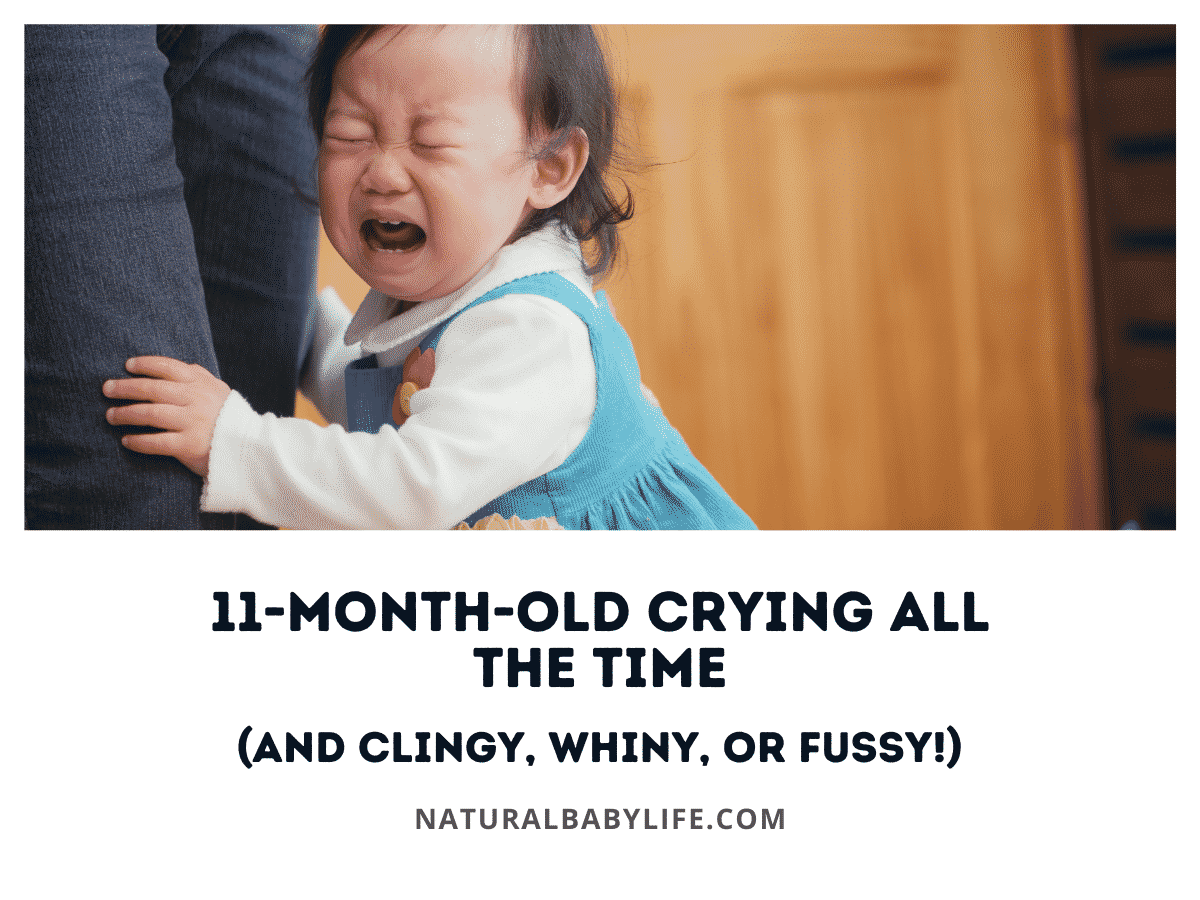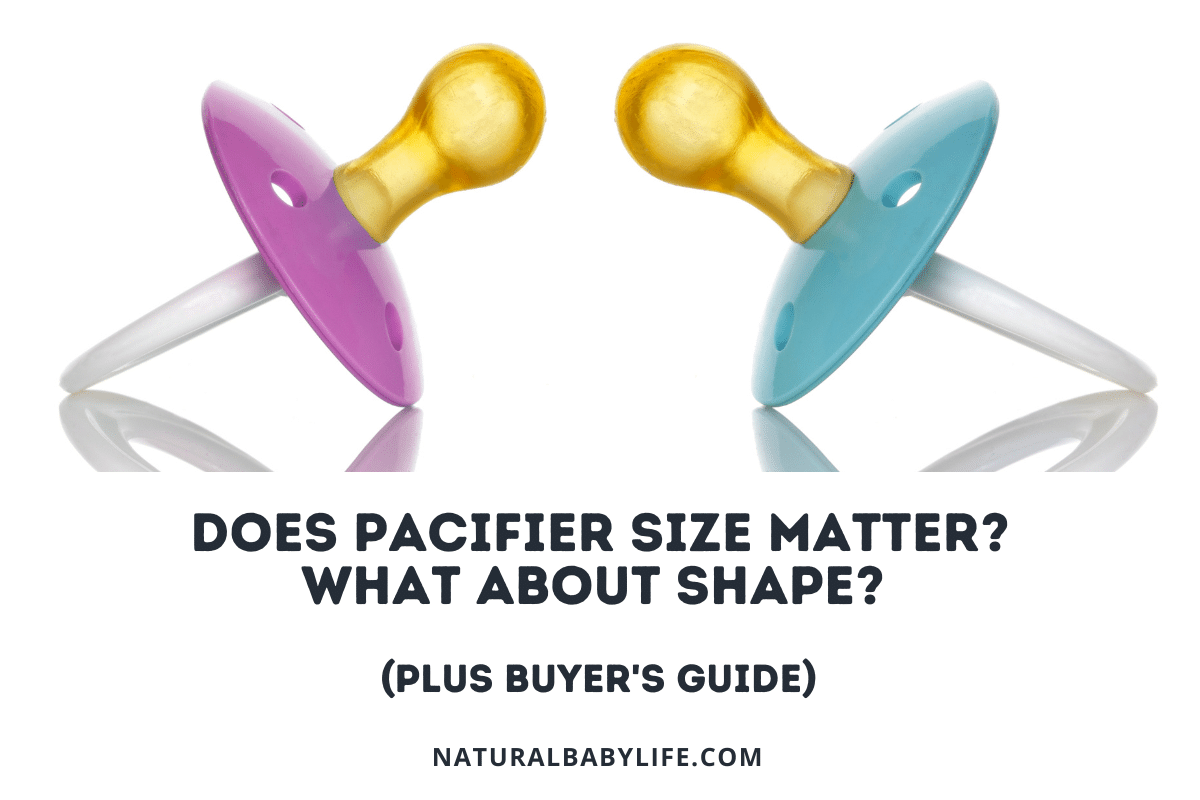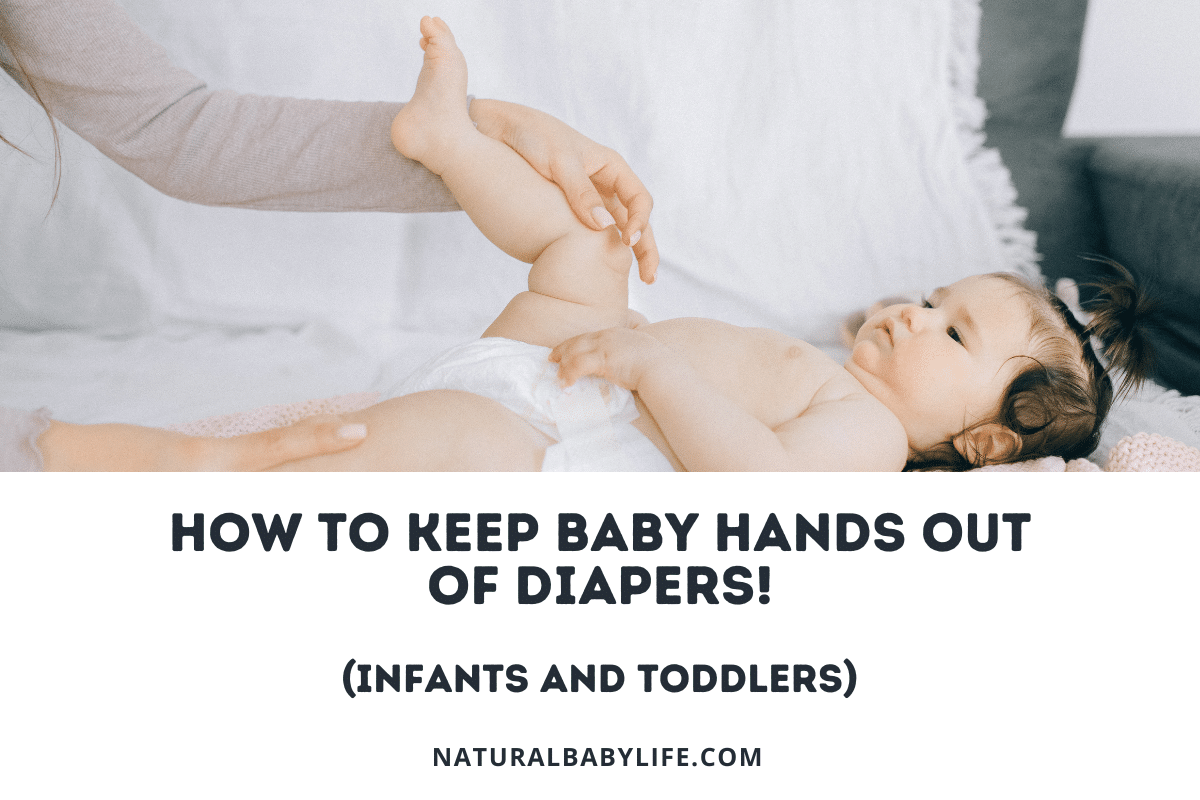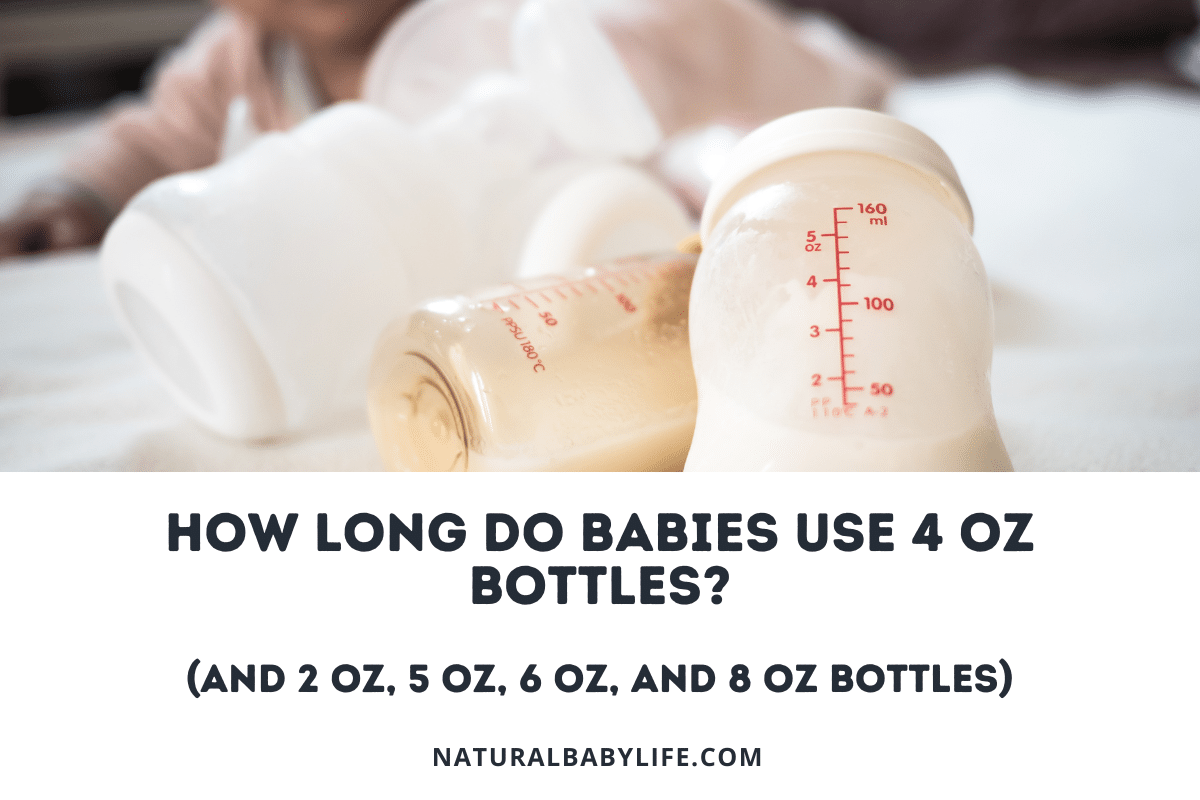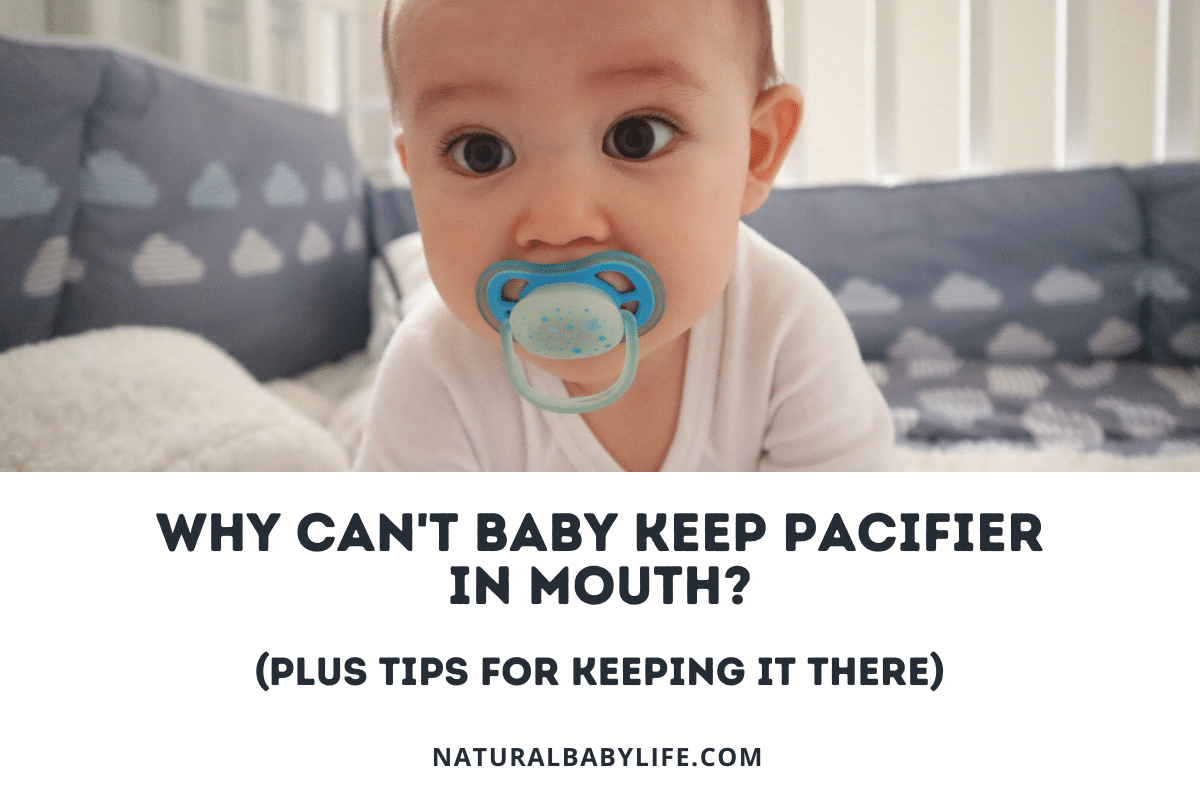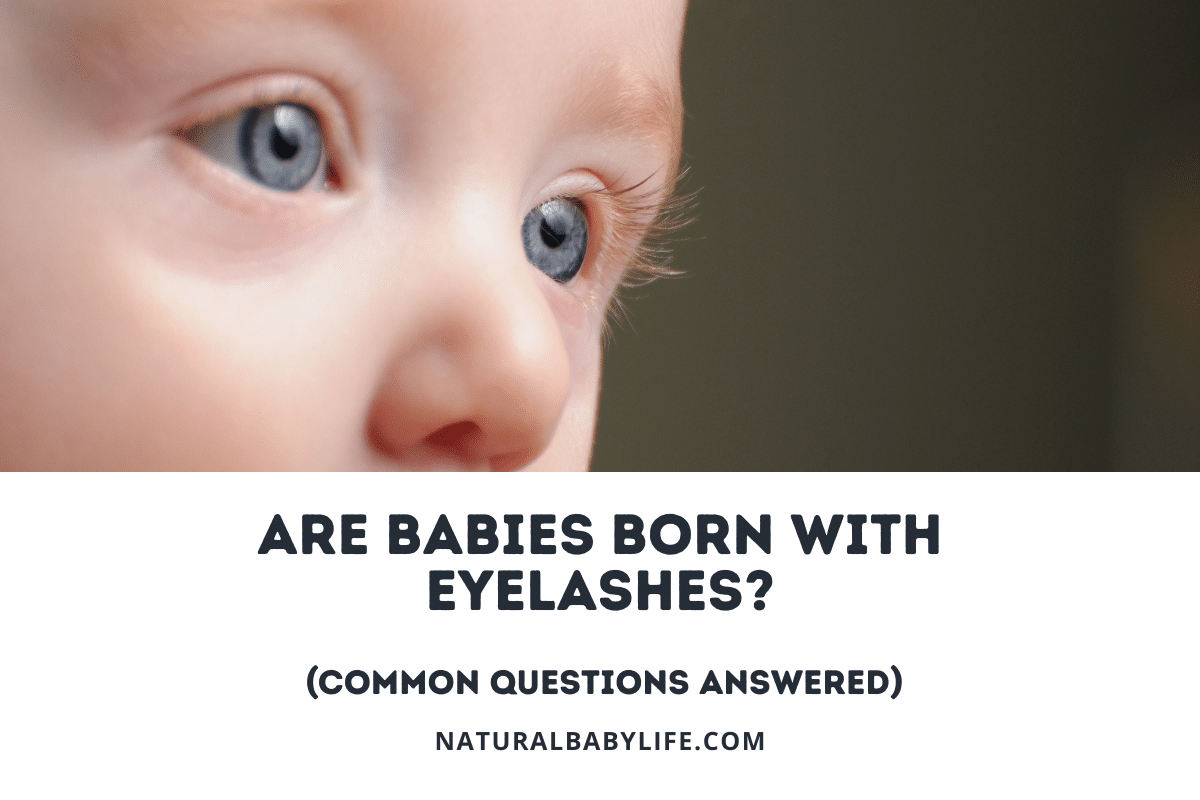Parenting an 11-month-old who is crying all the time can be frustrating. Many children this age are beginning to experience separation anxiety. Their world is rapidly expanding with newly acquired skills and that can also be scary for them. Is there anything you can do?
Your 11-month-old may seem to be whiny or clingy all the time all of a sudden. After the normal list of wet, hungry, sleepy, sick, or injured, there are new things to consider that may be contributing to their behavior. Being scared, uncomfortable, anticipating discomfort, and experiencing separation anxiety are a few things to consider.
Read on to learn why your 11-month-old seems to be crying all the time and to learn how to identify what’s wrong from your child’s perspective, and how to respond in a variety of situations that can keep both of you calmer and happier.
Table of Contents
Why is your 11-month-old crying all the time?
Crying and clinginess are common behaviors for children at this age. They are undergoing many changes and milestones that can seem scary or uncomfortable to them. Most can be managed by reassurance and empathy.
Eleven-month-old children are developing rapidly and gaining independence. This can lead to your child being more fussy, whiny, and clingy with all these changes. The most important thing at this stage is to reassure your child that they are safe while they are learning new things.
Teething, crawling, pulling up, and cruising along the furniture are common by this age. They also take more notice of changes in their environment, especially when you leave the room. Separation anxiety is a fear response and is heightened during this time of discovery.
If your child develops a pattern of crying inconsolably, seeking medical advice is likely a good idea. Injuries, allergies, and illness can sometimes be hard to determine in a child that is still too young to tell you what’s wrong.
Look for signs of pain, injury, and illness that can accompany constant crying:
- Changes in behavior such as eating less or becoming fussy or restless.
- Crying that can’t be comforted after all their basic needs have been met.
- Fever, vomiting, diarrhea, or crying while eating.
- Swelling, bruising, or bleeding of a particular area.
In the sections below you’ll find more helpful information for a variety of scenarios when your 11-month-old cries, and how you can most effectively respond to your child.
What if your 11-month-old cries all night?
At this age, many children experience temporary sleep regression. There is a combination of factors that can cause disrupted sleep and crying all night.
Separation anxiety, schedule changes, and exhaustion may be some of the reasons why your child cries all night. They are tired, confused, and miss you when they wake up.
Bedtime routines that are boring and reliable can help ease them into better sleep. Consider moving bedtime forward 15-30 minutes so your child won’t be overtired before bed.
Other common issues like teething, illness, or ear infections, are also common causes for 11-month-olds to begin crying all night. Check with your pediatrician if you suspect any of these may be causing the issue.
11-month-old cries when pooping?
It can be alarming when your child starts crying when pooping. Constipation is often the issue and can be caused by changes in diet.
When your child is pooping less frequently, straining, or crying, their stool is likely too hard. Limit dairy products for several days and replace them with fruit juice like apricot, pear, and prune juice. Also add baby foods that are high in fiber like peas, beans peaches, or plums.
Also, children who have previously experienced constipation may remember how uncomfortable it was, and they may be hesitant to poop out of fear or even cry when they’re not constipated.
Along with diet changes, here are some ways you can help your 11-month-old poop:
- Lay them on their back and move their legs in a bicycle motion for a few minutes, or pump the left leg lightly against the abdomen.
- Gently massage the tummy by pressing down with a couple of fingers just below the belly button on the left side of the abdomen and rotating in a clockwise motion.
- Sit them in a warm bath. Warm water can help relax the anus.
If changes in diet don’t help after 1 week or if symptoms get worse, call your pediatrician.
11-month old cries when you leave the room?
Separation anxiety in 11-month-olds is common. With their blossoming independence, comes new fears as well. Life changes can also add to an increased level of separation anxiety at this age.
Whether you leave the room for a few minutes, or you’re dropping off at a caregiver, your child may cry and be extra clingy with you. Their world is rapidly changing and you are their safety net. Try to be calm and consistent. Practice being apart, and reassure them you’ll be back and when.
New siblings, new caregivers, and new homes may also trigger separation anxiety. Not every child will experience separation anxiety, but if yours is going through it, here are some suggestions to help:
- Don’t just disappear – If you leave the room, let your child know you’re leaving and let them know when you’ll be back.
- Create an exit routine – Consistency is important to children. Be pleasant, loving, and firm in your goodbyes. Give them your full attention.
- Practice – Make arrangements with a grandparent or other trusted adult to spend a little time apart. Always reassure your child you’ll be back and when.
- Give extra cuddles – With big changes like a new sibling or a move, give some extra love and cuddles to reassure your little one that you’re still there for them.
The best thing to do is be calm, consistent, and patient. Eventually, your child will adjust.
11-month-old cries when you say no?
Often, your 11-month-old will cry when you say no because they are angry you’ve set a limit. Setting boundaries for your child is a normal part of development.
You can find creative ways to say no that don’t sound negative. Use sounds, facial expressions, and explanations so your child can learn other ways besides “no” that something is an undesired behavior.
Here are some suggestions to help your child understand you mean business without invoking a temper tantrum:
- Alternative phrases – Be creative by using alternative phrases with or instead of no to help your child understand. If they reach for the catbox, say “Icky! Make you sick!” Make the “icky face” too so that your child learns what the phrase means without the words.
- Positive substitutions – Let your child know they can’t have something but give them the choice for an acceptable alternative. Say something like “You can’t have the knife, but you can play with the spoon.”
- Be calm and consistent – Never yell or threaten and stick by your no’s.
11-month old cries in the car seat?
Children that start out uncomfortable on a car ride have a lesser chance of calming down for the rest of the trip.
At 11 months, your child is becoming less happy being restrained in many ways. They may start being particularly upset about being in a car seat. Separation anxiety, uncomfortable straps or clothing, and just being bored may also be reasons why your child cries in their car seat.
Here’s what you can do to ensure your child is comfortable and ready to roll:
- Check the straps -Your child is growing rapidly, so be sure to check that the straps on their car seat aren’t overly tight.
- Have special car toys – Keep your little one entertained by keeping a few special toys in the car. Stacking cups are particularly fun for them at this age.
- Use a device for longer trips – An iPad or DVD player can be a lifesaver on longer trips to keep your child entertained while you’re occupied by the road.
- Talk, sing or listen to favorite music – If you can, engage your child by singing silly songs or listening to favorite songs.
If all else fails, just talk to your child in a calm, soothing voice to let them know you understand their discomfort, but it’s for their safety.
11-month old cries when changing diapers?
Some children enter a phase starting around this time where they intensely hate diaper changes.
At this age, your child is likely to be upset when they are restricted from moving around. Other times, they are busy with something fun and don’t want to be scooped up and taken away. They may also not feel well from teething, ear infections, or illness.
Here are some ways to avoid a potential power struggle when changing diapers:
- Give a forewarning – Give them a little control over when they get changed. You could ask, “Are you ready to get your diaper changed now, or in 3 minutes?”
- Use a distraction – Keep a special toy in the changing room for changes only, or give them something to hold and “help” while you’re changing, like a closed tube of diaper cream or the diaper.
- Be silly – Tickle or blow on the belly, give toe kisses, or sing a silly song to help your child relax while changing.
- Check for diaper rash – Sometimes a sore bottom can be the reason your child cries when changing diapers. Use a soothing cream and a gentle voice when changing.
11-month old cries in the bath?
Fear of the water is very common in toddlers. Rapid brain development around this age makes them hyper-aware of their surroundings.
Some children become afraid of the water or drain noise. Or of slipping under the water or being swept down the drain. They may also hate getting their hair washed or be afraid of getting soap in their eyes. Their fears at this age are real to them, so don’t force them if your child is truly afraid.
They will eventually grow out of it, but a sponge bath every few days can make life easier until they do. A couple of times a week is enough at this age.
Here are some other things to try until your child is comfortable in the bath again.
- Use a smaller container – Your child may feel more protected in a small container of water or the kitchen sink with some warm water and bubbles.
- Bathe with them – You can try bathing with them in the tub. Start out holding them so they feel safe. Splash and play until they’re happy in the water before trying to wash them.
- Fill the tub with fun toys – And let them play while outside the tub before getting in.
11-month old cries when not held?
Separation anxiety can be the cause of many behavior changes with your 11-month-old. Crying while not being held, or wanting to be held all the time is another indicator.
At 11 months old, children need a lot of stimulation. With rapid skill growth and independence also come a lot of new fears. You are the anchor in their widening world so they can be clingy and want to be held often for reassurance that they are safe.
You won’t spoil them by picking them up, but there are times when you can’t or you just need a break. You can encourage your child to be independent during these times in a variety of ways:
- Have them help – When you need to get chores done, most children at this age want to be helpful. For instance, let them help you put clothes in the washer or sweep the floor with a toy broom. These are great for distraction and also encourage independence.
- Have them do an activity alongside you – If you’re cooking dinner, have them sit on the floor or in a high chair near you and color or draw. Reassure them you’re still there without picking them up.
- Warn of any changes – Let your child know of any changes in routine that are coming up or if you’re leaving the room or the house.
Again, the best thing you can do is try to understand from your child’s perspective how they may be feeling and respond with patience and reassurance. It will take a fair bit of practice. You can also get through these intense periods with your 11-month old by giving yourself a break when you need one.

